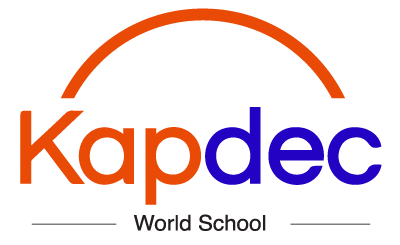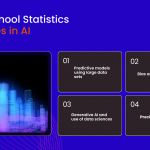The SAT and ACT have long been seen as key indicators of a student’s academic potential. However, in today’s fast-evolving world, there’s a growing need to redefine what these exams truly measure. The current structure of standardized tests often emphasizes memorization, formulaic math problems, and abstract reading passages—skills that don’t always align with real-life challenges students will face in college or the workplace. To stay relevant and valuable, these tests must evolve to include more real-world problem solving.
Real-world problem solving involves applying concepts to practical situations—analysing data, making decisions based on evidence, and thinking critically under constraints. This kind of thinking is far more useful in college classrooms and professional environments than solving isolated algebra equations or identifying grammatical errors out of context. Including more scenario-based questions would allow test-takers to demonstrate how well they can think, not just what they remember.
Platforms like Kapdec are already leading the way in this direction. As an education platform that focuses on applied learning, Kapdec offers students real-life case studies, logic-based math questions, and subject material designed to enhance reasoning rather than simple recall. Its adaptive learning model challenges students to think beyond textbooks and prepares them for situations that mirror real decision-making in academics and life.
The integration of real-life contexts in the SAT/ACT would also help measure a broader range of abilities. For instance, a student might be asked to interpret a news article about climate change, analyse a chart showing economic trends, or propose a solution to a logistical challenge. These types of tasks reflect how knowledge is used outside academic environments, making the test more meaningful and engaging. With support from platforms like Kapdec, students already exposed to these formats will be at an advantage—not because they’ve memorized facts, but because they’ve practiced thinking critically and logically.
Furthermore, revising the exam format could create a more level playing field. Many students, especially those from underserved areas, may struggle with traditional test prep methods. However, if the SAT and ACT evaluate reasoning ability, applied skills, and comprehension through practical examples, students from all backgrounds can better demonstrate their strengths. Kapdec’s mission of providing accessible, affordable, and context-rich learning resources helps bridge this educational gap, making it a valuable ally in reforming how we assess student potential.
In a world increasingly driven by innovation, digital literacy, and analytical thinking, our education systems—and the tools used to evaluate them—must adapt. By incorporating real-world problem solving, standardized tests like the SAT and ACT will better reflect the challenges and opportunities students will encounter beyond high school.
FAQ’s
1. Why is real-world problem solving important in standardized testing?
Standardized tests like the SAT and ACT aim to measure college readiness. But real life isn’t about solving equations in isolation or choosing the right grammar rule from memory. In today’s world, success depends on applying knowledge to real problems — like analyzing trends, interpreting charts, or understanding how data influences decisions. Real-world problem solving reflects how students will think in college and in careers, not just classrooms.
2. How do current SAT and ACT questions fall short in testing practical skills?
While these tests have evolved, many questions still focus on pattern recognition and speed rather than deeper application. For example, SAT Math often emphasizes abstract algebra over real-life budgeting, or interpreting complex functions without context. On the ACT, reading passages rarely reflect documents students encounter outside school — such as emails, reports, or visual data. These gaps leave out practical reasoning that students need in real-world situations.
3. Are there any sections in SAT or ACT that already include real-life context?
Yes, but they’re limited. The ACT Science section is a good example — it challenges students to interpret data tables, experiments, and research summaries. The SAT’s Evidence-Based Reading section sometimes includes nonfiction passages about social science or historical debates. But these still fall short of truly immersive real-world scenarios like comparing job offers, evaluating survey results, or interpreting public health data — the kinds of challenges professionals face daily.
4. What do college admissions officers say about real-world problem solving?
Colleges are increasingly valuing students who can apply critical thinking beyond the test room. Many admissions officers have shared in interviews (like in NACAC or The Chronicle of Higher Education) that they look beyond test scores and favor well-rounded thinkers. Still, high SAT/ACT scores are often used to award scholarships or meet baseline criteria. If these tests included more practical problem solving, they’d better reflect the kinds of intellectual curiosity and analysis colleges want.
5. Will including more real-life problems make the tests harder or easier?
It depends. For students used to rigid test prep, real-life problems may feel unfamiliar. But for others — especially those who enjoy case studies, news articles, or interdisciplinary learning — it could be easier and more engaging. In our experience at Kapdec, students improve faster when they understand why a concept matters. It shifts prep from rote learning to real thinking, which often leads to better performance in both school and standardized tests.
6. Are there alternatives to SAT/ACT that already focus on real-world thinking?
Absolutely. Programs like AP Capstone and IB Diploma require research, presentations, and source evaluation — all rooted in real-world scenarios. The Classic Learning Test (CLT) and some project-based schools also focus on practical analysis. At Kapdec, we emphasize real-life context in our ACT/SAT tutoring — not just to boost scores, but to develop long-term problem-solving confidence. This approach benefits students far beyond test day.
It’s time to move beyond outdated testing methods. With innovative platforms like Kapdec already setting the tone for practical, applied education, updating these standardized exams is not just beneficial—it’s essential.






